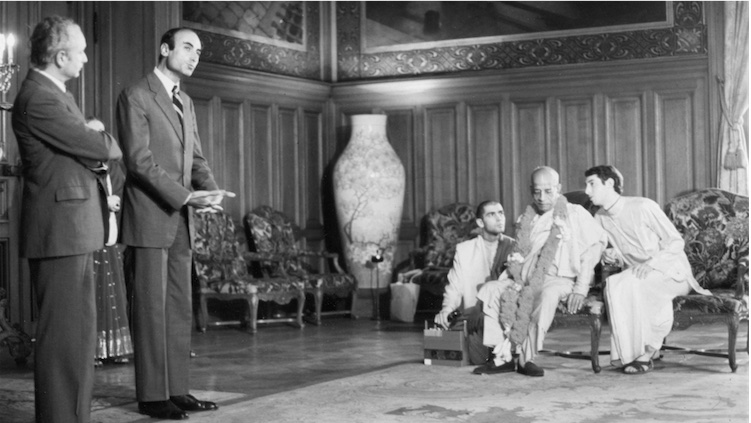Walking Our Talk: The Role of Krishna Bhaktas in Current Events
By Joshua M. Greene (Yogesvara dasa) | Feb 01, 2017

What would you do if the White House were to announce that President Trump added India to the list of nations whose citizens are temporarily banned from entering the United States? What if the president announced that banning entry to majority Hindu countries is a small price to pay for keeping America safe? Such a scenario is at least worthy of discussion.
Does Bhakti have a role to play in current events? Since followers of Krishna consciousness benefit from First Amendment religious freedoms, should they not object when that privilege is denied to members of other faiths? Or do such gestures lie outside the Bhakti mandate? Should devotees refrain from involvement because it’s not their business?
The issue here is not how someone voted. That was determined by each individual’s conscience. Nor is the issue the legality of the president’s executive orders. That will be determined by the courts. Rather, the issue is whether the devotee community should remain on the margins of society or take a place at the center of reform.
It goes without saying that violating constitutional safeguards in the name of protecting America is not only hypocritical but dangerous. Historically, every time the government has breached those safeguards it compromised the foundation of democratic due process, whether it was the Alien and Sedition Acts of the 1790s, the internment of Japanese Americans during World War II, the witch hunts of the McCarthy Era, the suspension of privacy rights in the aftermath of 9/11, or the current ban on entry to majority Muslim nations as a way of safeguarding America from ISIS and other terrorist groups.
Hitler, by the way, used a similar argument for suspending Germany’s Constitution just after his inauguration as chancellor in 1932. “We are under attack by terrorists,” he declared and then initiated a police state that set in motion the darkest period in human history. The moment for the German people to speak out was when the suspension was announced. “We have rights here,” they could have said. “We have a Constitution. This is not our way. It is illegal and we will not let it happen.” The German people failed to take that stand and by their silence paved the way for National Socialism.
If we have learned anything from the Holocaust period, it is that those who do nothing stand with the perpetrators, not with the victims. The relevance of that sobering message for Krishna Bhaktas is this: If we abstain from engagement with world events, are we practicing Bhakti or perpetuating its irrelevance in world affairs?
A ban on Hindus is, at least for now, fictitious, but a real case of discrimination did occur in 1976 when charges of brainwashing were filed against ISKCON. That case was resolved when the New York Supreme Court declared Krishna consciousness a “bona fide religion” with roots going back thousands of years in India’s history. It is significant that the suit was won in large measure thanks to support from scholars, government officers, non-Hindu religious leaders, and others who were not themselves practitioners of Krishna consciousness but who saw the injustice in denying devotees their constitutional rights. Should followers of Krishna consciousness decline to speak out at a moment when others are being denied those same rights?
Prior to coming to America, Srila Prabhupada addressed current events in every edition of Back to Godhead magazine. After arriving in the West, he continued to address world events. He had students read to him from newspapers and he responded to issues of the day. He authorized Balavanta Das to run for public office because he believed in spiritually informed governance. He cited current events in his writings and lectures because he sought to show the synergy between personal spiritual evolution and the healing of the global community.
Fifty years after his departure, the issue for followers remains the same as it was during his presence: how to demonstrate the relevance of his teachings? After much reflection, my own conclusion is that we are remiss as disciples if we fail to do so. At the very least, a letter from ISKCON officials condemning the ban is in order.
* * *
About the author: Yogesvara traveled with Srila Prabhupada as translator in French-speaking countries. Currently, he is a member of the ISKCON Resolve mediation group. In 2000, he served as Director, Strategic Planning, for the United Nations Peace Summit of Religious and Spiritual Leaders. Since then, he has taught Holocaust history and Bhagavad Gita at Hofstra University and at the Jivamukti Yoga School in New York City. j














